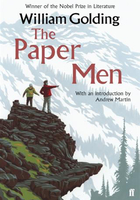Innovative State
Government doesn't work. Many in the United States have come to that conclusion, convinced that our government is too big, slow, inefficient, and incompetent. Congressional approval ratings have sunk to shocking lows, even before the October 2013 federal shutdown, which caused Senator John McCain to quip that, in terms of supporters, "We're down to blood relatives and paid staffers now."[1] That was followed by the clunky immediate rollout of Healthcare.gov, which seemed to only reinforce the notion that government was inept, incapable of effectively launching such an important, highly visible website.
During my time as Assistant to the President and our nation's first Chief Technology Officer, I saw something that seemed to confirm the most cynical beliefs. This wasn't a problem at some peripheral agency, on the outskirts of government. This mess, in the fall of 2009, was at the Department of Veterans Affairs.
Since America's inception, we have pledged to honor and support veterans in appreciation for their service. Over the years, we have largely upheld that promise through acknowledgment and accommodation. Veterans of the Revolutionary War received pensions as well as local and state-provided medical care, and more than ten thousand of them also were given grants of public land, anywhere from one hundred acres for a noncommissioned officer to 1,100 acres for a major general. These grants continued after the War of 1812, and matched the profile of our country at the time--independent, rural, and expanding westward.
The long and bloody Civil War created an overwhelming demand for health services. After Abraham Lincoln used his second inauguration to call upon Congress "to care for him who shall have borne the battle, and for his widow and his orphan," legislators sent him a bill for what was then called the National Asylum of Disabled Volunteer Soldiers, which he signed just weeks prior to his assassination.[2] The end of World War I and then the onset of the Great Depression brought about years of contentious debates regarding soldiers' pay and benefits. In 1930, President Hoover created the Veterans Administration via executive order, and after the Bonus Army marched on Washington two years later, President Franklin D. Roosevelt's New Deal settled much of that conflict.[3] Veterans continued making progress, through World War II's GI Bill and the expansion of the VA health care system.
A new century brought about a new sort of war, one that began with terrorists crashing planes into the World Trade Center, and continued in Afghanistan and-more controversially-Iraq. For those who served since September 11, 2011, Senator Jim Webb of Virginia, a decorated Vietnam War veteran and former Secretary of the Navy, conceived and sponsored the Post-9/11 Veterans Educational Assistance Act of 2008. The bill offered those servicemen and women the most comprehensive educational benefits since World War II--including full funding for a public four-year undergraduate education to veterans who had served three years of active duty since that date.
Yet, like so many endeavors that arose from noble intent, this one had been fraught from the start with errors in execution, which played out in operational delays. And, as is also often the case, the press had taken notice. The headlines came fast and furious. In the New York Times, one read "Veterans Report G.I. Bill Fund Delays."[4] In the Washington Post, another read "Even with Check in Hand, G.I. Benefits Elusive."[5] The corresponding articles shared the frustrations of young veterans who had made significant life decisions based on these promised services, and then found, after they had made apartment deposits, purchased textbooks, and enrolled in classes, that they didn't know exactly how much of those expenses would be covered by the promised benefits. These delays were forcing some to take out loans to continue their coursework, keep their apartments and homes, or even eat their next meals.
As these anecdotes wormed their way to Washington, they began eating at Rahm Emanuel, the high-intensity White House Chief of Staff. I witnessed this firsthand, as I participated in the senior staff meetings every weekday morning in the Roosevelt Room.[6] I was part of a trio, with Chief Information Officer Vivek Kundra and Chief Performance Officer Jeff Zients, that Emanuel jokingly called the "McKinsey Kids," although none of us had ever worked at the consulting firm.[7] We all held new positions created by President Obama upon taking office with a pledge to run a "government that works."[8]
Yet, for too many veterans of the wars of Iraq and Afghanistan, government wasn't working. Emanuel set a baseline goal-stop the bleeding. So we awoke in the wee hours on October 9, 2009, and, digital tourniquets in tow, confidently boarded a military plane from Andrews Air Force Base, out of the hangar where the President's plane resides. Upon landing in St. Louis, our contingent, which also included top Veterans Affairs officials, headed off to a VA document-processing center[9] to identify the root causes of the problem. That understanding didn't come through the morning's briefings behind conference room doors; it happened when we ventured out to the main floor to witness the processors at work. They had access to the information they needed to determine whether an applicant was entitled to a benefit, and how much. But the agent's support software required too many steps, and screens, to view, combine, and process the necessary information. In order to answer two basic questions, the government processing agent needed to draw from roughly a dozen different databases, none of which talked to the other, requiring a great deal of back-and-forth manual checking for each application. No wonder there was a breakdown and a backlog, when nearly 280,000 veterans were applying for benefits in a tight time frame.
There was no easy, permanent fix, at least none that could be formulated quickly enough to immediately address all of those veterans' needs. Yet, on the flight home, and in the days that followed, we settled on an intervention to alleviate the backlog. The agency added hundreds of temporary contractors from the private sector to confront the current crisis. Together, the White House and VA established a daily reporting cycle aimed at holding the agency accountable, with results forwarded to Emanuel's office. We also approved emergency advance payments so that veterans could continue with classes while the agency sifted through their paperwork and sorted out their claims.
We simply did the best we could, and the results, in that sense, were reasonably satisfying-in the spring of 2010, the U.S. Government Accountability Office found that the VA had reduced the average national processing time for original Post-9/11 GI Bill claims by 19 days and supplemental claims by 23 days. After fully implementing a new automated process called a Long Term Solution, the processing time would be cut to an average of six days for students renewing the benefit in the spring semester of 2013.[10]
That represented significant progress in one corner of the U.S. government. Still, it was the product of patchwork, manpower thrown at an inefficient process, more than a manifestation of reliable, nimble, working government. Truth be told, for too long, that's how the American public sector has set out to solve lots of problems, often not so successfully or sustainably.
Is this the best that our government can do?
The nation's leading CEOs certainly didn't think so. That's why more than 50 of them[11] accepted President Obama's invitation to the opening session of the Forum on Modernizing Government in January 2010. There, he asked for their input, in an effort toward imitation. "I know that many of you have felt these challenges in your industries and in your businesses-some of you have felt them quite acutely," the President told the assembled experts. "But I also know how you've managed to meet them, and managed through them-experimenting and innovating and finding new ways to increase productivity and better serve your customers. We're here today because I believe your government should be doing exactly the same thing."[12]
Few would disagree with that sentiment. Certainly, many citizens don't feel well served.
But how? How should, and can, government change? How can we, the people, play a part?
It starts with collectively changing the conversation. That means leaving behind the tired arguments about government scope and size, arguments between those who enthusiastically espouse bigger and those who staunchly support smaller, arguments that create adversaries and animosity but little advancement.
This isn't about bigger. This isn't about smaller. This is about smarter.
This is about creating an "innovative state," a government for the twenty-first century, one that engages its diverse society, encourages participation, and creates a partnership toward problem solving.[13] It also means fostering a state of innovation, searching for the roads not yet traveled, applying new tools and technologies that may allow for the achievement of more with less.
An innovative state focuses on the public/private interface, with emphasis on opening government data to the public and encouraging its use; convening the private sector to adopt standards that allow greater competition, especially in regulated sectors of the economy; paying for results through prizes and challenges, rather than paying for promises through procurement processes; and injecting an entrepreneurial mindset in the government by attracting and retaining top talent.
Making America again an innovative state, a smarter state, is what this book is about.
This book is for government employees who feel stifled by budget bickering and political posturing, yet still believe in the spirit of public service and the possibility of bettering people's lives. It is for entrepreneurs who have shied away from assisting the government on account of bureaucratic hassle, but still believe they can contribute something significant to the search for solutions. Above all, it is for concerned citizens of different political affiliations who have lost some confidence in government, but still believe it can be a force for good.















